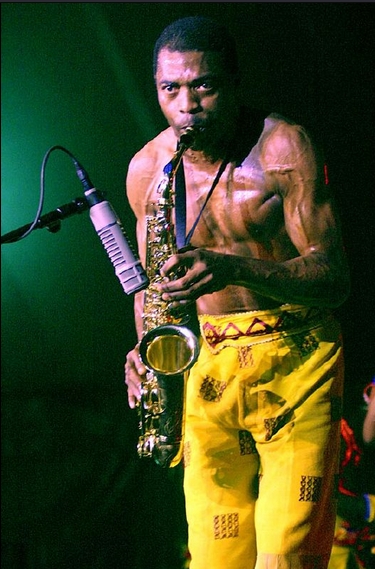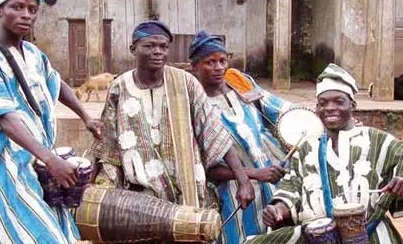
support@yorubalibrary.com
+2348073529208, 07038599574

Fela Anikulapo Kuti, born in 1938 in Abeokuta, Nigeria, is one of the most influential figures in the history of Yoruba music and African music as a whole. His unique blend of traditional Yoruba music, jazz, funk, and highlife created the Afrobeat genre, which gained international acclaim.
Early Life and Musical Beginnings
Fela Kuti was born into a politically active family, with his mother, Funmilayo Ransome-Kuti, being a prominent women's rights activist. Fela's exposure to political activism from a young age profoundly influenced his music and career. He studied music at the Trinity College of Music in London, where he was introduced to jazz and began experimenting with various musical styles.
Creation of Afrobeat
In the late 1960s, Fela returned to Nigeria and formed the band Africa '70, where he developed Afrobeat—a genre characterized by its complex rhythms, lengthy instrumental sections, and politically charged lyrics. Afrobeat was a powerful vehicle for Fela to address social and political issues, criticizing government corruption, inequality, and oppression.
Political Activism and Influence
Fela Kuti was not only a musician but also a vocal political activist. He used his music as a platform to challenge Nigeria's military regimes and advocate for the rights of the oppressed. His fearless activism led to frequent arrests and harassment by the government, but he remained steadfast in his commitment to social justice.
Legacy and Impact
Fela Kuti's legacy extends beyond his music. He is remembered as a symbol of resistance and a champion of human rights. His influence can be seen in the work of contemporary musicians who continue to draw inspiration from his fearless advocacy and musical innovation. Fela's life and music have inspired numerous documentaries, biographies, and even a Broadway musical, ensuring that his impact endures.
Conclusion
Fela Anikulapo Kuti is one of the most outstanding singers in the history of Nigeria. Though he died, but his legacy lives on.

The unique styles of Yoruba Bata and Dundun dances…

The emergence of new age social media and impact i…